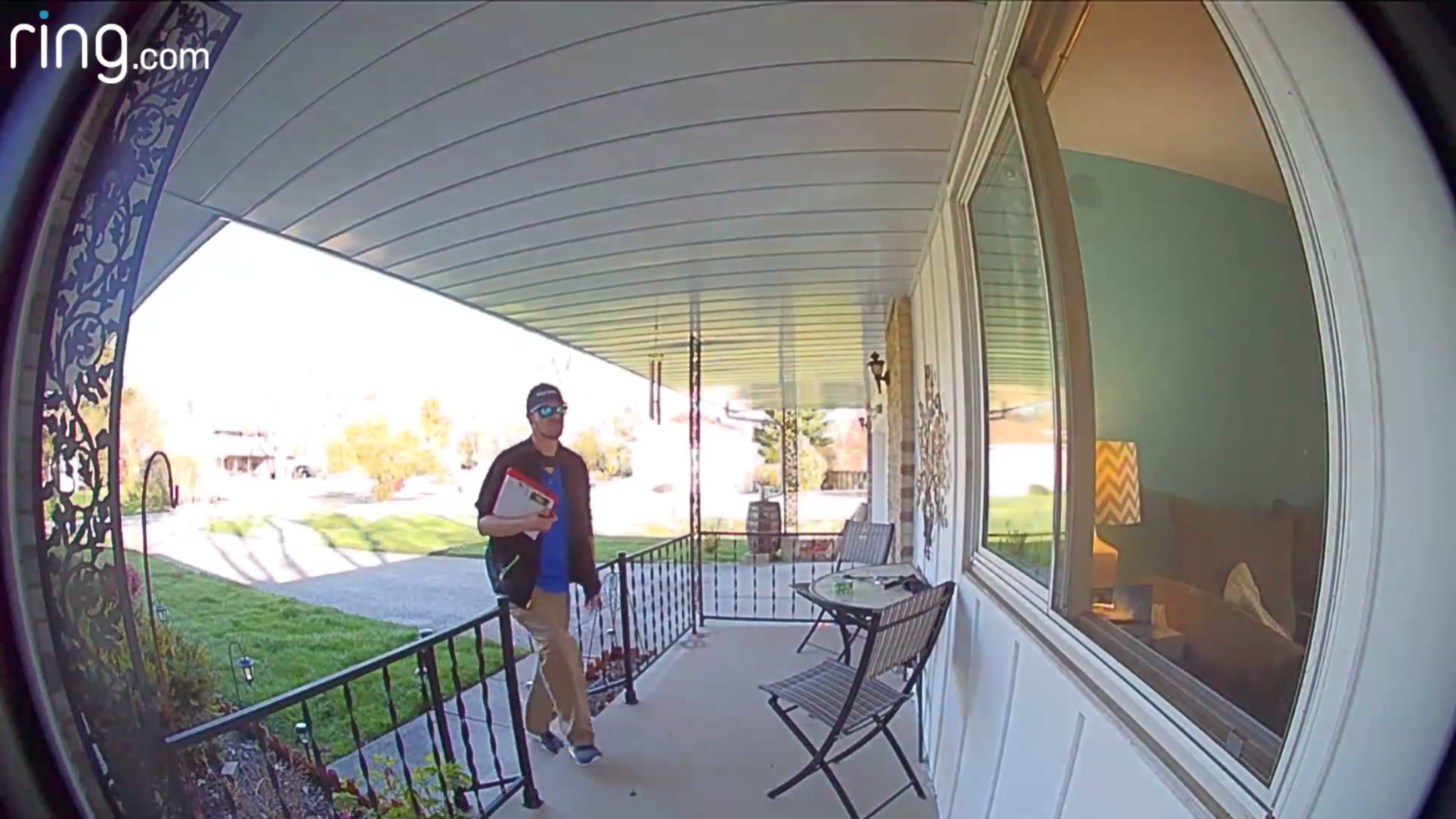Our Memorial Day weekend campfire got postponed a day on account of more rain, but we received our first double rainbow of the year as a result.

Happy Memorial Day!
–Simon

Tales from Easement Acres
Our Memorial Day weekend campfire got postponed a day on account of more rain, but we received our first double rainbow of the year as a result.

Happy Memorial Day!
–Simon
Part of homeownership, I’ve noticed, is the increased onslaught of people who want to sell me things I don’t need. But in the interest of civility, as I myself have worked for many years interacting with the public, I exercise good manners. But, as with telemarketers, these door-to-door salesman tend to be over-aggressive. If they simply introduced themselves and their services, then handed me a pamphlet, I’d be much more inclined to consider whatever they happen to be peddling. But that’s never the case.

Despite popular belief, humans are very adept at reading each others’ intent from body language and facial cues. It’s a primal instinct intended for self-preservation. And while I doubt this man showed up at my door to kill me, he certainly read as disingenuous.
So began the myriad of sales tactics. He was selling a service to spray for bugs. He informed me that my neighbors were already buying it and were happy. He assured me that the spraying was invisible, so it wouldn’t mar the otherwise beautiful external appearance of our home and therefore keep my wife happy. He pointed out the ants and carpenter bees as potential victims. He then motioned to record some info and asked if I would be home tomorrow.
I had once made the mistake of providing an alternate electricity provider my email. It took months to get my junk filters configured to delete the spam, and the phone calls continued for a year. Despite which, that last question was incredibly presumptuous, as if I had already agreed and taking down my info was just a formality.
Repeated polite denials eventually conveyed my disinterest, and he left. Perhaps gated communities aren’t nearly as dumb as I had once thought.
–Simon
Alas, we’ve received our first Spring rainbow. It isn’t epic–it’s humble and modest, yet bold in stature. Unassumingly low on the horizon, but wide.

–Simon
Bloggers (and YouTubers) have a misguided perception that anyone cares what they have to say. I know this intrinsically as I write, and am well aware that few, if any, will ever read these words.
Regardless, most content “creators” operate under this fallacy, assuming that not only do people as a whole have the remotest semblance of interest in their thoughts, but that they should be paid for their troubles. Enter advertising.
But this is not commentary on the economic model of capitalism. This is commentary on ego–the way we use the word now, not the Freudian definition. In short: arrogance. I find it increasingly difficult to find web content devoid of advertising, regardless of the content’s apparent quality. And we are enabling this trend by democratizing ads–companies that provide advertising scripts freely–in a sense…adsense…as it used to be called.
The argument is old, that commercializing art devalues it. That may be true, but it doesn’t prove that that art is absent entirely. In fact, I would go so far as to say that exists in the same quantity as it always has, and now we have to tools to enjoy it without distraction.
For those who have yet to embrace ad-blocking, for whatever reason, a tool exists which goes beyond–element blocking. Yes, it is possible to selectively block any part of a web page that I find detracts from the quality of the article itself. For example, on one particular blog I frequent, I have blocked 19 superfluous and unsightly banners, ads, and columns promoting the site’s other content. One might argue that doing so is messing with the designer’s intended creation, but that’s nonsense, for the alternative is not viewing his content at all.

So really this is just an overly wordy recommendation of the browser plugin uBlock Origin.

Also check out Privacy Badger, NoScript, and Cookie AutoDelete.
Take back the web and enjoy it for what it should be: artistic and intellectual content.
–Simon
I’ve mentioned The Landscaper, our neighborhood stoner landscaper who doesn’t seem to concern himself much over his children’s blatant disregard for property lines. Our tenuous relationship as neighbors I had considered to be a cliché, owing to the old adage that “fences make good neighbors”. And seeing as I had landscapers in the family, I had never considered the profession in itself to be in any way related to The Landscaper’s sub-nominal personality traits. No one wants to be judged for the profession in which they arrived, if said profession was not the original plan. I can personally attest to that sentiment.
Liz and I had discussed hiring a landscaping company, as the 0.48 acres could be quite daunting to mow in the dog days of Ohio’s summer (during which I had learned to apply deodorant to certain body parts to which I had never previously considered applying deodorant). A 2 hour per week investment is right on the fringe of becoming non-trivial, yet I had faltered for 3 reasons: the cost of doing some simple mowing seemed unreasonable ($40? Fuck you. I’d hire a neighborhood kid for half that), they probably wouldn’t do the job to my level of expectation, and mowing is my primary source of cardio (otherwise I’d have to go jogging–fuck that). But something else nagged at my already-wavering conviction.
One evening, as I was driving home from work, I stopped at an intersection, dutifully obeying the rules of the road. A pickup, hauling a trailer of landscaping equipment, turned left towards me. In so doing, the driver yelled out to me, “Ur takin’ up the fuckin’ lane ya faggot!”.
The comment gave me pause. First of all, I was not taking up his lane. I had merely left the courteously bare-minimum space to my right so that if a car behind me needed to turn right, they could do so without me first having to vacate. Second, it was an extremely rude and offensive comment to make to a fellow motorist. At the time, I had simply ignored it, since the fellow obviously proved himself to be beneath contempt. He completed his turn without incident, proving that I had indeed left sufficient space, and I continued on with the rest of my day.
The encounter would have faded from memory, but Liz recounted a story of a colleague’s run-in with a landscaper–something about a collision and overblown tempers and threats of litigation. Then I recalled my mother’s stories about her former employer. Then I remembered The Landscaper.
Then this guy showed up at my door, soliciting his own landscaping service. I would have dismissed the encounter entirely, had he not had the audacity to then ask me whom I was currently employing. I told him it was me. He left immediately.

It might be a foregone conclusion, but landscapers are assholes. Were it not merely due to my aforementioned reasons, this conclusion itself is reason enough to deny additional revenue to these degenerates. No, I’ll continue to mow the lawn myself, and when I’m too old and feeble to manage the task myself, I’d gladly pay a neighbor’s son the equal of your their rate, just to deny them the revenue. Fuck you.
–Simon